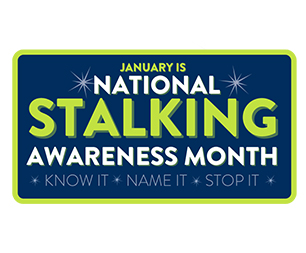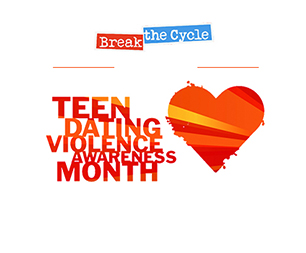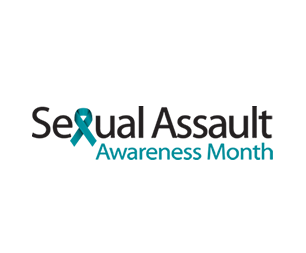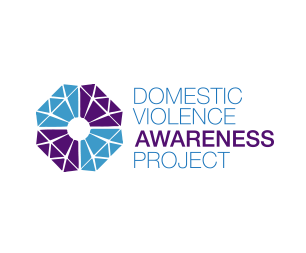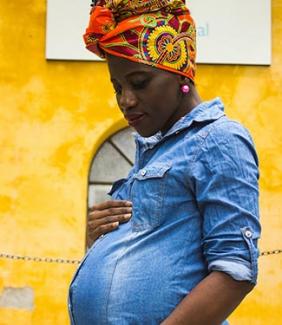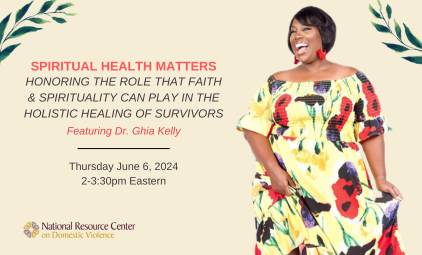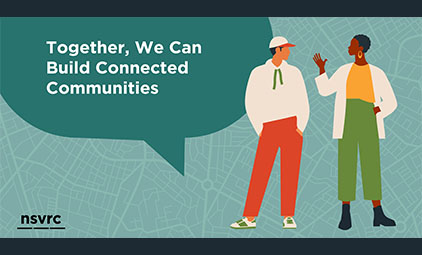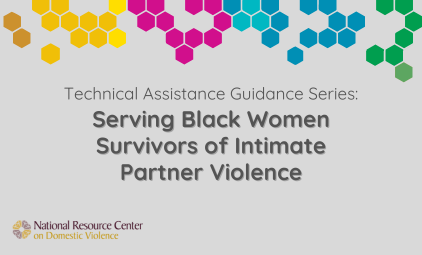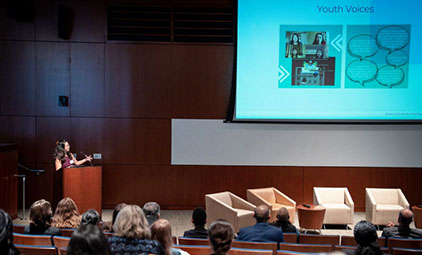By Alana C. Brown, founder and executive director of The Safe Sisters Circle
Black women have a complicated historical and contemporary relationship with domestic violence and sexual abuse within the United States. This has resulted in the highest rates of both domestic violence and sexual abuse victimization for Black women than any other ethnic/racial group.
- An estimated 45.1% of Black women experience contact sexual violence, physical violence, and/or stalking by an intimate partner in their lifetime.
- 35.5% of Black women experience some form of contact sexual violence during their lifetime.
- 21.2% of Black women report being raped during their lifetime.
Despite high rates of physical and sexual abuse, discriminatory practices against Black people, and Black women and femmes in particular, have led to both a lack of access to quality sexual and reproductive care and/or ethical, nondiscriminatory healthcare treatment towards Black patients. This often results in high rates of maternal risks and mortality, infant mortality, and transmission of Sexual Transmitted Infections (STIs), including HIV, among Black women (Prather et al., 2018).
The physical, sexual and reproductive exploitation of Black women in the United States
Historically, Black women have always been denied decisions regarding their own sexuality and reproductive rights. There has always been physical or sexual harm directed at Black women’s bodies, often for the benefits of others. Therefore, in order to effectively fight against Black women’s inadequate access to quality health care and reproductive rights, there must first be an exploration of the historical factors in this country that started the denial of Black women’s right over their bodies. Specifically, a focus needs to be on the United States intentional control and experimentation with Black women’s autonomy, physical, mental, and sexual health in a manner that has benefitted white society’s social and economic well-being.
Slavery is the clearest example of this exploitation. Many enslaved Black women became sexually and physically victimized during slavery through legalized rape and sexual assault perpetrated by white men. There was also legal reproductive exploitation, wherein Black mothers were used to reproduce in order to create more slaves for slaveowners (Prather et al., 2018).
However, even after the end of slavery in 1865, the denial of Black women’s bodily autonomy persisted well into the Jim Crow Era and, unfortunately, through contemporary times. Black women’s bodies have been irrevocably harmed by forced sterilizations and hysterectomies as a tool to control the Black population within the United States. Systematically, this is illustrated by giving Black women fewer opportunities for quality healthcare that is equitable to their white counterparts, higher rates of cesarean sections among Black women, pregnant Black women experiencing inadequate care for pain compared to their white counterparts, and being subjected to a health system run by physicians with little empathy for people with experiences different than their own (Villarosa, 2018).
Although some of this inequitable health care may be class-defined by the fact that many Black women live in low-income communities, this would ignore the substandard health care resulting in high mortality rates suffered by upper- and middle-class Black women. According to the Centers for Disease Control, Black mothers in the United States, regardless of economic or educational status, are 243% more likely to die from pregnancy, or childbirth related causes, than their white mother counterparts. It appears that racism dictates which women get the appropriate level of reproductive and sexual health care in this country. As stated in the NPR article, Black Mothers Keep Dying After Birth, Shalon Irvings Story Explains Why, many social scientists and medical researchers now agree that “the problem isn’t race but racism.”
Intersection of reproductive justice, domestic violence, and sexual assault
Reproductive justice is the right of a person to have basic autonomy over their body and sexuality. According to Addressing Intimate Partner Violence, Reproductive and Sexual Coercion: A Guide for Obstetric, Gynecologic and Reproductive Health Care Settings, reproductive justice is the right to safely have a child or not have a child, the ability to have that child safely, to seek out birth control or abortions, to determine how many children a person produces, and to be free of trauma and violence that can affect a person’s autonomy and decision making powers regarding their sexuality.
If domestic violence, intimate partner violence, and sexual coercion is defined as a pattern of behaviors by one party to maintain power and control over another party in an intimate, domestic, or sexual context, then it is easy to see how an abuser can use the reproductive factors listed above to perpetuate reproductive abuse. It is also easy to see that as applied to Black women, reproductive abuse is yet another intimate method of denying Black women autonomy and control over their bodies and sexuality.
Examples of reproductive abuse in a domestic and sexual violence context include:
- Forcing or denying a person to get an abortion

- Forcing other forms of birth control on a person
- Sabotaging or denying a person’s access to birth control
- Refusal of a person to wear condoms during intercourse
- Pressure on a person to have children
- Purposefully impregnating a person against their desires
- Lack of purposeful access to abortions, birth control, or maternal health
- Trauma and stress of abuse leading to unhealthy pregnancies and births
- Intentionally exposing sexual partner to STIs including HIV
Denial of Black women’s victimhood
Another essential factor at the core of Black women’s experience regarding reproductive and gender-based abuse in the United States is the constant denial of Black women’s victimhood (Kendall, 2020). Black women have been denied victimhood by law during slavery and Jim Crow, where it was not illegal to rape or sexually assault Black women and in current de facto practices today. In Hood Feminism: Notes from the Women That a Movement Forgot, Mikki Kendall explicitly speaks about the fact that Black women who face sexual abuse, even before adulthood, are often “labeled fast-tailed retroactively by people who need to believe that what happened to them was their fault” and that this fact is inextricably related to the long history of justifying slavery and both the physical and sexual violence perpetrated against Black women.
The American health care system’s inability to provide adequate and equitable medical care for Black women as compared to white women also speaks to Black women’s lack of victimhood (or acknowledgement of the importance of healthy Black motherhood). In terms of reproductive justice, this ultimately means that Black women, by virtue of their gender and race, receive less quality prenatal and post birth health care than their white counterparts (if they are able to receive prenatal care at all), leading to higher prenatal and infant mortality rates and adverse sexual and reproductive health outcomes.
Importance of culturally specific programming and anti-bias training
Advocates with the desire to fight for reproductive justice for Black women, with its intersectionality with domestic and sexual violence, must always first address Black women’s specific, historical, and contemporary marginalization, violence, and trauma within this country and the world. Programs should be designed to address individual based problems such as Black women’s racial trauma, individual unique needs, and self-esteem; interpersonal problems such as reducing individual and community-based stigma, violence, and even internal shame by and against Black women; and institutional level barriers as seen in reproductive discrimination. Programs should also tackle the very real systemic racism, racial discrimination and lived experiences that Black women may face when seeking legal, medical, or social services for domestic, sexual, and reproductive abuse based on harmful assumptions and stereotypes. They must work to understand and rectify the lack of trust that Black women have built up against these systems due to history and experience.
 Most importantly, Black women must be on the forefront of change to existing systems and hold leadership roles at traditional gender-based violence and reproductive health organizations.
Most importantly, Black women must be on the forefront of change to existing systems and hold leadership roles at traditional gender-based violence and reproductive health organizations.
“African-American women must be involved in the design, implementation, and evaluation of all aspects of the research and implementation of agreed-upon programs.” (Prather et al., 2018)
Culturally specific programs ensure this because they provide services to an individual from members of the same community that creates a comfortable environment where trust is established. Therefore, a culturally specific, gender, and race-based approach is necessary to both prevent and fight against this country’s long held tradition of all its forms of violence against Black women’s bodies and its constant denial of Black women’s reproductive autonomy.
When targeting inadequate health care faced by Black women, the health care system must react by training or retraining its doctors with anti-Blackness and anti-biases/cultural training and hiring more Black women medical professionals who can more easily relate to Black women patients. Equally important is ensuring that medical personnel listen to Black patients’ descriptions of their pregnancies, pain, and anything they feel to be out of the ordinary within their own bodies (as a study showed that 1 in 5 Black and Latina women reported poor treatment and being unheard by hospital staff because of race, ethnicity, and cultural background) when treating them.
Access is the last big factor. Although class is not the only factor affecting Black women and low reproductive health care and high pregnancy mortality rates, it is an important factor and as such, it is imperative that actual access to quality, affordable, and accessible healthcare in majority Black communities actually exists.
For more information:
![]() The Safe Sisters Circle provides free culturally specific, holistic, and trauma-based services to Black women survivors of domestic violence and/or sexual assault primarily living in Washington, DC’s Wards 7 and 8.
The Safe Sisters Circle provides free culturally specific, holistic, and trauma-based services to Black women survivors of domestic violence and/or sexual assault primarily living in Washington, DC’s Wards 7 and 8.
 SisterSong’s mission is to strengthen and amplify the collective voices of indigenous women and women of color to achieve reproductive justice by eradicating reproductive oppression and securing human rights.
SisterSong’s mission is to strengthen and amplify the collective voices of indigenous women and women of color to achieve reproductive justice by eradicating reproductive oppression and securing human rights.
 Ujima: The National Center on Violence Against Women in the Black Community serves as a national, culturally specific services issue resource center to provide support to and be a voice for the Black Community in response to domestic, sexual and community violence.
Ujima: The National Center on Violence Against Women in the Black Community serves as a national, culturally specific services issue resource center to provide support to and be a voice for the Black Community in response to domestic, sexual and community violence.










